HS-ESS1-4
Use mathematical or computational representations to predict the motion of orbiting objects in the solar system.
-
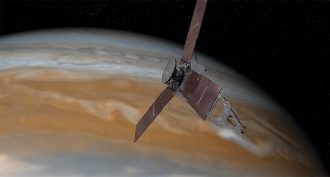 Planets
PlanetsJuno’s knocking on Jupiter’s door
The Juno spacecraft will peer into Jupiter’s clouds and fly in close to its monstrous auroras.
-
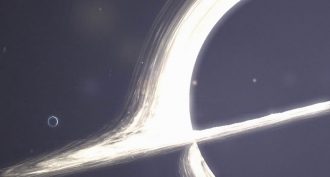 Physics
PhysicsSpinning black holes may ‘sing’ during a collision
The massive black hole in the movie Interstellar would create a unique gravity-wave signal when gobbling a smaller partner.
-
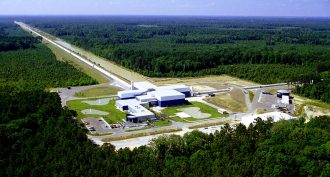 Physics
PhysicsGravity waves detected at last!
Albert Einstein predicted gravitational waves 100 years ago. Now scientists have detected them coming from the collision of two black holes.
By Andrew Grant -
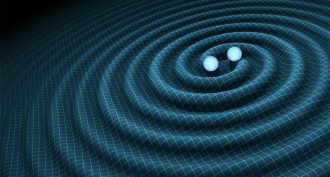 Physics
PhysicsExplainer: What are gravitational waves?
Albert Einstein had predicted that large catastrophes, like colliding black holes, should produce tiny ripples in the fabric of space. In 2016, scientists reported finally detecting them
-
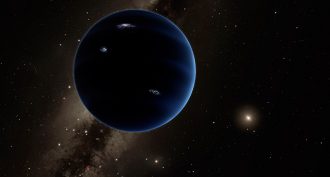 Planets
PlanetsBeyond Pluto: A new 9th planet?
A giant planet, perhaps 10 times Earth’s mass, may be orbiting the sun from a great distance. Its existence, orbit and size are all surmised, based on strange effects seen in objects within the distant Kuiper Belt.
-
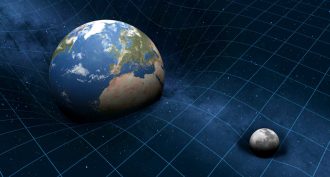 Physics
PhysicsEinstein taught us: It’s all ‘relative’
One hundred years ago, a German physicist shared some math he had been working on. In short order, his theory of relativity would revise forever how people viewed the universe.
-
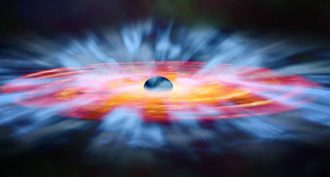 Physics
PhysicsStephen Hawking says his group has solved a black hole puzzle
Physicist Stephen Hawking says light sliding along the outside of a black hole holds the key to understanding what’s inside.
By Andrew Grant -
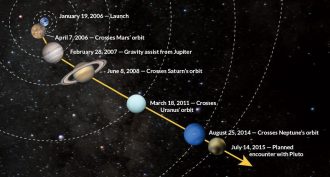 Planets
PlanetsVisiting Pluto
Pluto has long been little more than a dark spot in the sky. Now NASA’s New Horizons spacecraft is about to fly by this dwarf planet. Along the way, it will collect unprecedented data on it.
-
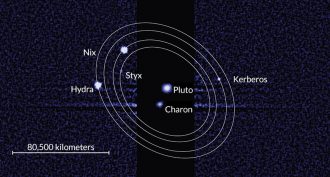 Planets
PlanetsCosmic collision may have given birth to Pluto’s moons
Hubble Space Telescope photos reveal that the Pluto family may have formed from debris left behind after something slammed into the dwarf planet.
-
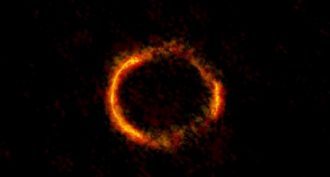 Space
SpaceScientists Say: Gravitational lens
A gravitational lens is an effect that occurs when a massive object lies between a viewer and something further away. The massive object’s gravity bends light arriving from the more distant object.
-
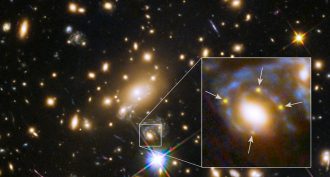 Space
SpaceGalaxy cluster creates ‘magnifying glass’ in space
A massive galaxy’s gravity is so strong that it bends light, creating a “lens” in space. This natural magnifying glass is giving astronomers a rare view of a supernova on the other side of the universe.
By Ilima Loomis -
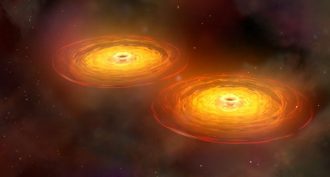 Space
SpaceBlack holes are on collision course
But be patient. The distant galactic smashup is still some million years away.